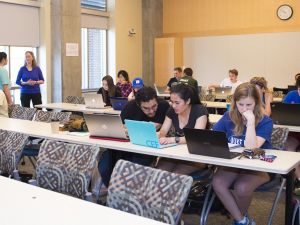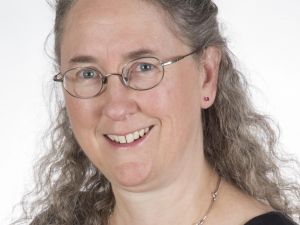Brandon Fain aims to prepare Duke Computer Science students for real-world computer science success

Brandon Fain, newly appointed Assistant Professor of the Practice of Computer Science, has two admirably practical goals in mind for his time at Duke. One, he hopes to use computer science to solve real-world problems. And two, he intends to teach the next generation of students to do the same.
As it happens, Fain is a homegrown talent himself. He finished his Ph.D. at Duke just last year, winning Outstanding Dissertation and teaching awards along the way. As he transitions into his new role with the university, Fain says he’s genuinely excited to pass on knowledge of his specialty areas. Among these is the emerging area of research known as algorithmic fairness, a relatively recent but very busy area of study which deals with eliminating bias in machine learning systems. To this end, Fain and several of his students spent the summer analyzing algorithmic solutions for election-year issues like districting and gerrymandering.
As a Professor of the Practice, Fain’s focus is ultimately on the undergraduate teaching mission of the university. “I do a lot of teaching, and I also like running projects and summer research experiences,” Fain says. “A big priority of mine is getting the best experience possible for students.” Fain says that while the Covid-19 crisis poses a challenge for his style of teaching, he still puts a premium on collaboration and group work. “That's how all substantive computer science in the real world is done,” he says. “Nobody does anything alone.” Fain has found that with teleconferencing and distance education, there are plenty of ways to overcome obstacles caused by the pandemic. “It can be interesting to do these kinds of collaborative project experiences when everyone is remote,” he says. “I also like collaboration because students just tend to get more done.”
Fain says that his essential strategy at Duke Computer Science is to position himself alongside students and help them to define their own interests and passions. “I want teaching to be the focus of my career all around,” he says. “For me, my scholarship and research are in service to teaching and students.”




